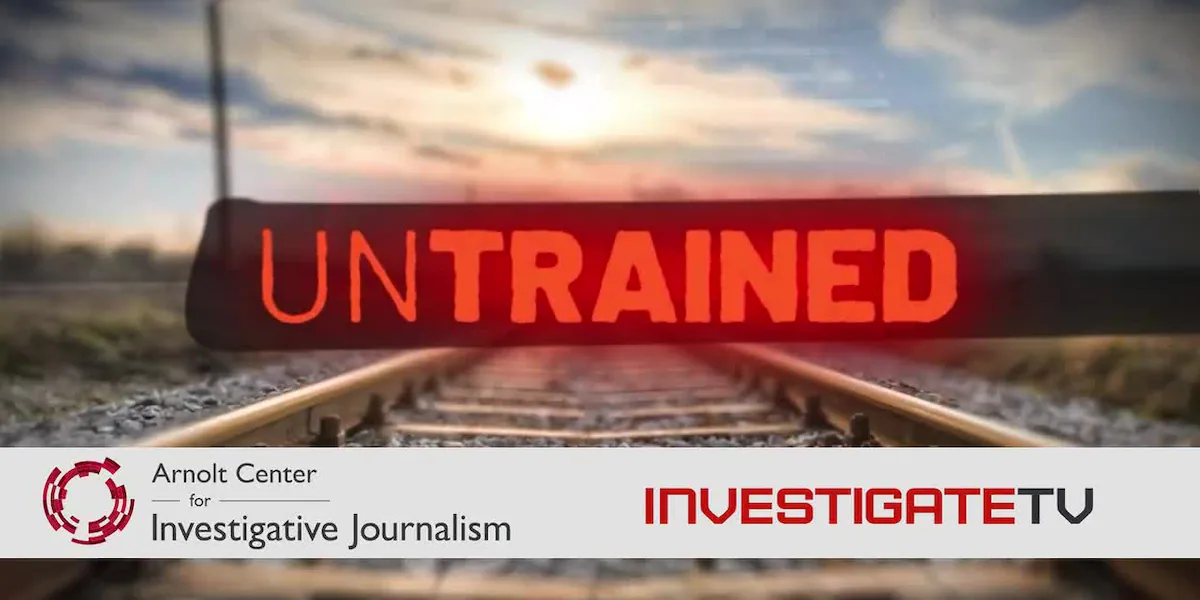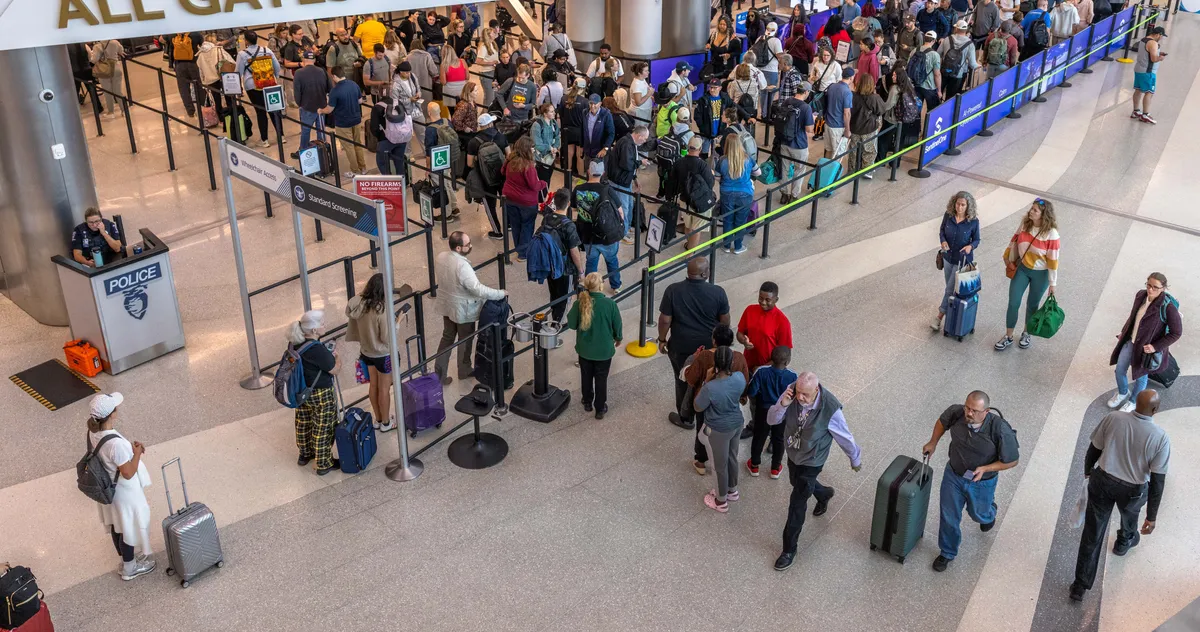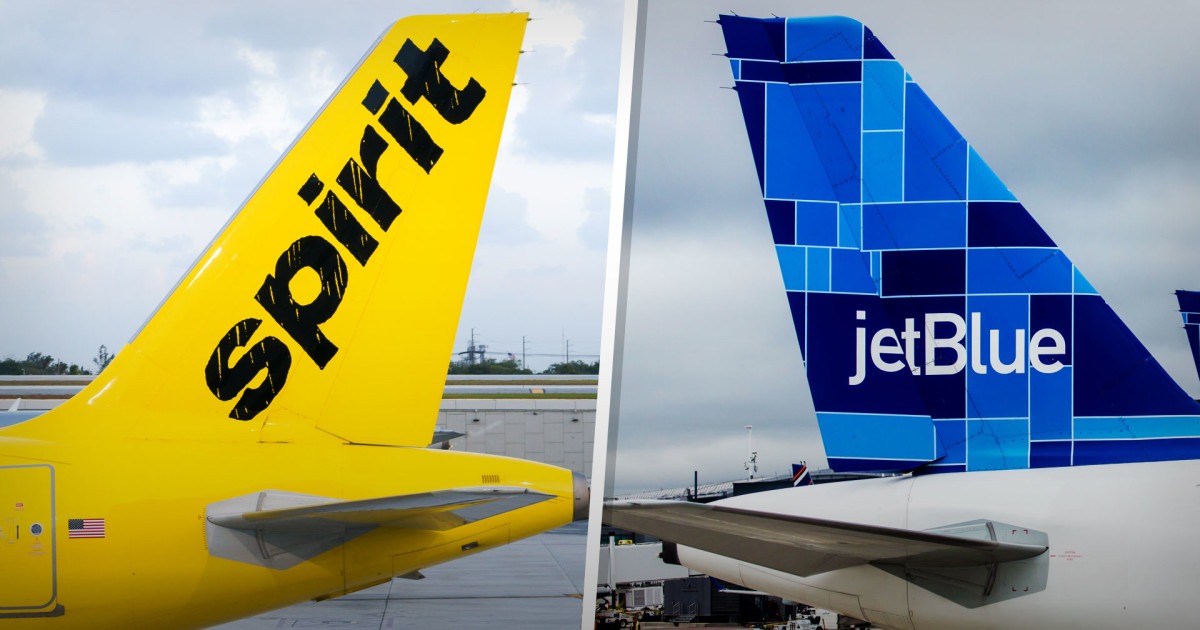Copyright WIS10

REESEVILLE, Wis. (InvestigateTV) — The 911 call came in just after 2 p.m. on a sunny August afternoon. The woman on the phone calmly told the county dispatcher, “There’s been a train derailment. I saw the dust and I’m like, ‘This is bad.’” On the edge of Reeseville, Wisconsin, a Canadian Pacific train derailed, with more than 20 cars off the tracks – some crumpled like accordions and buried in the neighboring marsh. The first responder on the scene was a deputy with the Dodge County Sheriff’s Office. His body camera captured an interaction with an unidentified firefighter just moments after the call came in. “They’re flammable tank cars,” the firefighter told the deputy. “I can tell. With radios on and stuff, we’ll have to be careful how close we get. If there’s leakage or not, we could blow the thing up. I’d rather not die today.” Clyman-Lowell-Reeseville Fire & Rescue Chief Eric Howlett was already making the drive toward the disaster, his mind racing. “What are we up against? How bad is it? What is the train actually carrying?” said Howlett, recounting the thoughts he had during the emergency nearly four months ago. In a strange twist of fate, they’re questions to which Howlett had already sought answers just two years prior – when another derailment in nearly the same location tested the preparedness of his team to respond to a potential hazardous materials incident on the rails. “You potentially have people’s lives at risk or even yourself if you’re not properly trained,” he said. But an InvestigateTV survey of dozens of fire departments across the nation found many may not be fully prepared to react to a derailment that involves dangerous content like toxic chemicals, flammable liquids, and even radioactive material. We discovered that competing priorities, funding constraints, and timing are creating training inconsistencies despite massive efforts by the rail industry and others to get first responders the information and tools they need to be ready. Derailments involving hazmat release are rare, but impactful Reeseville’s earlier derailment in 2023 did not involve hazardous materials. But this past August, things were different. Initial reports from the scene claimed the damaged cars were carrying thousands of pounds of highly flammable ethanol, sending crews scrambling into action. With help from a rail industry app, they were able to quickly determine the train was carrying crude oil in all 95 of its tanker cars. Howlett said first responders were ready thanks to virtual and hands-on training sessions that gave them skills to handle this kind of rare yet impactful disaster. “You want to be ready for anything that’s thrown at you,” he said. Not every fire department from coast to coast is fully prepared for the possibility of becoming the next Reeseville, or even worse, the next East Palestine. In 2023, that Ohio village was the site of a toxic train derailment that triggered a massive fire, the evacuation of thousands of people, and hundreds of millions of dollars in environmental damage. The East Palestine incident is considered the most serious derailment in the United States in years, but it’s far from the only one. Federal Railroad Administration data analyzed by InvestigateTV shows that since 2020, there have been more than 1,600 derailments involving trains carrying hazardous materials. Of those incidents, 725 included damage to a car containing hazmat, with dozens of accidents where that material was released - including major train wrecks in Arizona, Kentucky, and Louisiana. Still, research by InvestigateTV with help from the Arnolt Center for Investigative Journalism at Indiana University exposed that many communities are not getting specific training that could prepare them for how to react to a hazmat derailment. “It’s a huge problem.” InvestigateTV and the Arnolt Center surveyed dozens of local fire departments near rail lines nationwide, finding some don’t do any training for potential derailments involving hazardous materials, even when the leaders of those departments expressed real concern about the possibility. Our team also found that even when departments do training, there are big variations in frequency, with some going years between sessions tailored to this kind of scenario. Many departments, we also discovered, rely solely on online classes rather than hands-on training exercises. That’s especially true for volunteer departments that told InvestigateTV they’re often strapped to find time to prepare specifically for this kind of disaster, even when they’d likely be first on scene, waiting minutes or hours for specialized hazmat teams or response crews from the railroads themselves. “I think they’re putting themselves in a very dangerous position,” said Jamie Burgess, Director of Training and Grants for the International Association of Fire Fighters (IAFF). “They may never have a train derailment in their community, and I pray that they don’t. But as with anything else, if you don’t train and prepare for it, when it actually does happen, you’re going to be at a severe disadvantage.” IAFF represents hundreds of thousands of first responders across the country. Burgess said the organization works to secure millions of dollars in federal funding every year to make sure the hazmat training programs they need are available. He pointed out that many departments actively battle time and resource challenges, leaving them no choice but to push specialized training for an event like a hazmat derailment to the back burner. “It’s such a low-frequency event that some fire departments don’t place as much emphasis on it, which makes sense because if you’re responding to a house fire every day or every week, you’re going to train for what you’re most likely to experience,” he said. “Essentially, you’re competing with every other job function that you have to do. And unfortunately, hazardous materials doesn’t always come to the forefront.” The rail industry makes a major push to provide training and a critical tool The rail industry is also acutely aware of how training priorities, resources, and time could impact crisis response. Andy Elkins oversees hazmat compliance for the Association of American Railroads, which represents the nation’s largest freight railroads. “Anytime you have a potential incident, and you’re not prepared, you have to start from scratch,” he said. “The more you train, the safer you are, the better your response is going to be, and the more effectively you’re going to serve your community.” Elkins said the industry has worked diligently to remove some of the biggest burdens to training – travel and cost – by meeting first responders where they are, both with in-person or remote training conducted virtually. Last year, AAR said freight rail carriers themselves trained at least 30,000 first responders. Some of the major players, including CSX, even take hazmat simulator trains on the road to give emergency crews exposure to what they could see in real life. InvestigateTV got special access to on-site training in Washington, D.C. this summer as more than 200 first responders were walked through emergency scenarios and how to react. Preparing for a potential disaster involving hazmat on the rails isn’t just about answering questions and role-playing. It’s also about arming the men and women who will likely roll up on a derailment first with the physical tools they’ll need to minimize any potential impact. “The most important thing that you can have when you respond to any incident is knowledge,” Elkins said. In derailment situations involving potentially hazardous materials, the knowledge that’s needed can be unlocked using codes already stamped on every railcar in the country. The markings indicate exactly what’s carried inside train cars – and can be deciphered using an app developed by the rail industry more than a decade ago. The AskRail app that can be used on phones and desktop computers breaks down not just what’s being carried car by car, but also containment protocols tailored to specific chemicals and evacuation zones down to street level. The information is available to emergency crews in seconds. AAR said AskRail has already been put into the hands of more than 2.3 million first responders for free. But many of the smaller departments surveyed by InvestigateTV and the Arnolt Center indicated they don’t use it, with some saying they had never heard of it, despite massive amounts of industry outreach about a tool that could save lives in that once-in-a-lifetime scenario. “Not having critical pieces of the puzzle creates potential failure. We want you to have every piece of information,” Elkins said. “Most first responders will never respond to a hazardous materials incident, but when they do, we want them to have the training, have the tools, know where to get the additional resources, and have the confidence to know the railroads are on the way.” Back in Reeseville, the rail tracks are back in operation, but the road to recovery is just beginning. As of late September, debris from the wreck still sat in tangled piles along the track. Damaged tanker cars were laid out like fallen soldiers at a warehouse just down the dirt road from the derailment site. As the cleanup continues, so does the preparation for Chief Eric Howlett and the other first responders. Training, he said, remains a top priority because lightning could always strike, for a third time. “You name it, it happens. And that’s our slogan we always talk about. It’s Dodge County. It will happen,” he said. Taylor Kuelthau, Kelsey Pease, Victoria Rhemrev, Ethan Roberts, Jacob Spudich, Rachel Stickelmaier, Claire Tips, and Nora Uber with the Arnolt Center for Investigative Journalism at Indiana University also contributed research to this report. Submit story tips to our Investigators Share errors or concerns with our Digital Editors Watch full episodes of InvestigateTV+ Subscribe to the InvestigateTV YouTube Channel



